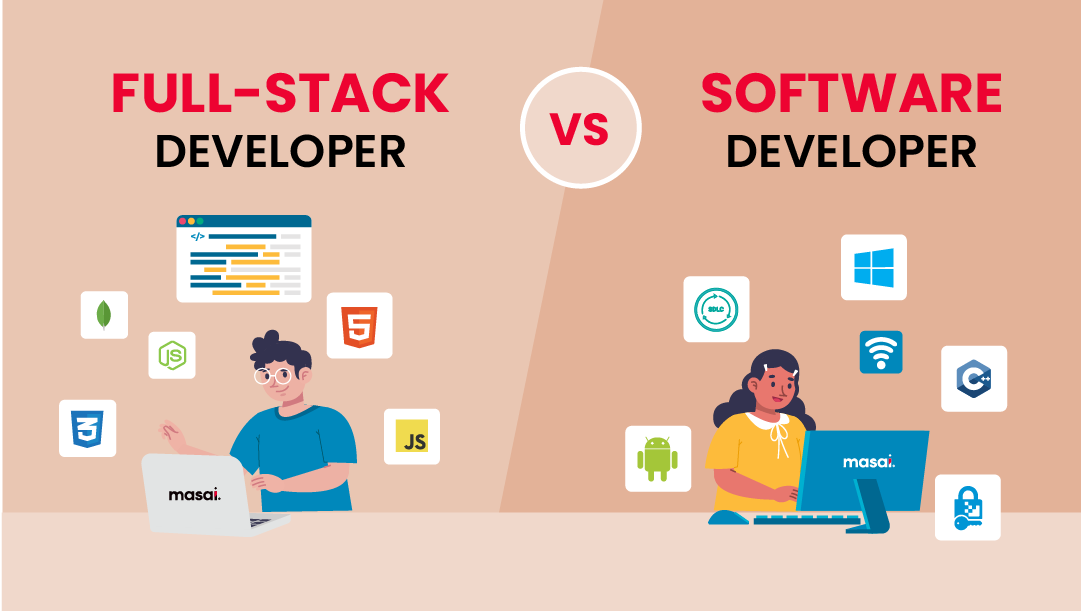Discover the Benefits of Nearshore Software Development for Your Team
Discover the Benefits of Nearshore Software Development for Your Team
Blog Article
Dedicated Developers vs. In-House Teams: Which Is Right for You?
The choice between using specialized programmers and keeping an internal group is a considerable one that can influence the trajectory of your projects and general business strategy. Conversely, in-house groups contribute to a cohesive business society and a nuanced understanding of long-lasting goals.
Understanding Committed Designers
The expanding demand for specialized skills in the tech industry has led to the appearance of committed developers as a sensible service for several companies. These specialists are commonly gotten on a task basis, permitting companies to leverage particular expertise without the long-term dedication connected with full time hires. Devoted developers are usually embedded within a customer's group, offering adaptability and scalability to fulfill job demands.
This version allows organizations to access an international talent pool, which is specifically useful in a quickly developing technical landscape. Devoted programmers can be sourced from different geographical places, guaranteeing that business can find the ideal ability established at competitive rates. They commonly bring a wide range of experience and understanding, having serviced varied projects across various sectors.
Moreover, specialized developers can concentrate exclusively on the jobs at hand, boosting performance and efficiency. They are outfitted to integrate flawlessly right into existing workflows, teaming up carefully with internal teams to attain project purposes. This approach not just lowers the concern of employment and training but additionally permits organizations to stay dexterous, adapting swiftly to transforming market needs and technical improvements.
Advantages of In-House Teams

Moreover, in-house teams often tend to have a much deeper understanding of the firm's goal, worths, and goals. This positioning can boost employee engagement and inspiration, as employee really feel more attached to their job and the organization's success. In addition, having a devoted internal group permits better positioning of purposes and strategies, as these participants are constantly concentrated on the company's concerns.
In-house teams additionally promote quicker decision-making procedures, as they can react a lot more quickly to obstacles and adjustments. The established partnerships and knowledge with business procedures enable streamlined operations and reduced miscommunication. Eventually, the combination of a natural society, alignment with business objectives, and effective interaction makes in-house teams a valuable asset for several organizations, especially those aiming to grow long-term development and development.
Price Factors To Consider
When reviewing price considerations, both internal teams and committed programmers present unique financial implications for organizations. Engaging dedicated programmers commonly involves a pay-per-project or hourly price model, which can be affordable for sdlc businesses with varying project needs. This approach enables adaptability in scaling sources up or down, making sure that companies only spend for the solutions they require.
In contrast, in-house teams entail fixed costs, including wages, benefits, and overhead expenses such as office space and equipment. While this model uses higher control and immediate availability of sources, it might bring about higher long-term costs, particularly if the work does not warrant a full-time personnel.
In addition, business must think about the hidden costs related to recruitment and training of in-house staff members, which can further strain spending plans. Sometimes, the time and sources invested on taking care of an internal group can detract from the company's core organization objectives.

Job Administration and Flexibility
Job administration and versatility are vital factors that affect the option in between in-house teams and committed developers. Devoted teams usually have actually developed processes for taking care of projects successfully, leveraging specific link methodologies like Agile or Scrum, which facilitate repetitive progression and versatility.

Inevitably, the choice between internal groups and committed programmers pivots on the wanted degree of versatility and the specific project administration demands. Firms should examine their operational dynamics, task intricacy, and source accessibility to identify which alternative aligns finest with their critical goals.
Making the Right Option
Selecting the best growth approach-- internal teams or specialized developers-- calls for a mindful analysis of different variables that align with a firm's critical goals. On the other hand, in-house groups can offer better connection and combination with existing employees.
Following, assess your budget plan. Committed developers often offer a cost-efficient solution for short-term jobs, while internal groups may sustain higher long-term expenses as a result of salaries, benefits, and expenses expenses. Analyze the degree of control and cooperation desired; internal teams commonly cultivate more powerful interaction and positioning with firm society.
If instant outcomes are required, dedicated designers can be onboarded quickly, whereas constructing an internal team takes time for recruitment and training. If constant development is important, investing in an internal group may produce better returns over time.
Final Thought
To conclude, the choice between internal groups and committed developers pivots on project needs and business purposes. Dedicated developers give versatility and customized proficiency, making them suitable for short-term initiatives. On the other hand, in-house groups grow a cohesive culture and much deeper positioning with long-term goals. Careful assessment of budget restrictions, project timelines, and desired control degrees is important for establishing the most ideal method, guaranteeing placement with tactical priorities and functional performance.
The choice between making use of committed programmers and keeping an internal group is a considerable one that can affect the trajectory of your tasks and overall organization strategy.Task management and versatility are critical aspects that affect the option in between in-house groups and dedicated designers. software development partner.In contrast, internal groups might succeed in preserving a consistent task administration structure due to their experience with the company's society and long-lasting discover this info here objectives. Dedicated developers typically offer an affordable remedy for temporary projects, while internal teams might incur greater lasting expenditures due to salaries, benefits, and overhead costs.In conclusion, the choice in between devoted programmers and internal groups hinges on job needs and organizational goals
Report this page